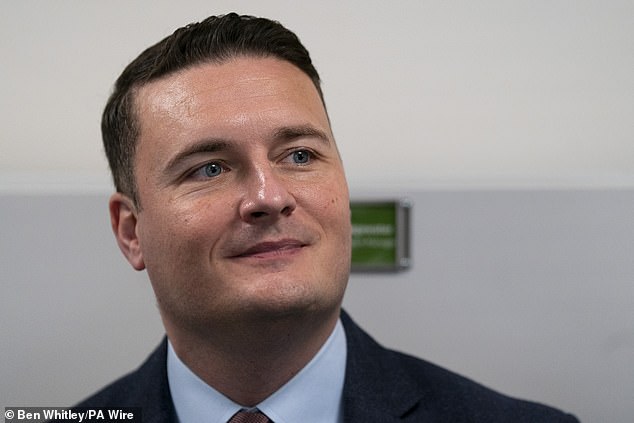Anger at private health data having to be sold to companies and researchers to help fund the NHS
Private health data will be sold to companies and researchers to help fund the NHS under controversial plans being considered by officials.
The proposals are expected to form part of the government’s 10-year health plan, which will be unveiled by Health Secretary Wes Streeting in the spring.
Although anonymised patient records are already being sold, a new ‘National Health Data Service’ will make the currently ‘complicated’ and disjointed process of accessing patient data easier.
But the professor in charge of overseeing the sale of medical data has warned that citizens could find it “unpalatable” if their data is bought by multinationals.
The government-backed inquiry into how data is stored and used by the NHS, carried out by Cathie Sudlow, professor of neurology and clinical epidemiology at the University of Edinburgh, has called for a central service to control and store information.
The idea is gaining support among Whitehall departments, the Financial Times reported.
The most controversial part of the plan will likely revolve around the pricing of medical data, which experts have warned will increase public concern about profiting from private medical information.
Professor Sudlow said there has already been ‘a lot of thought and ongoing discussion’ – within the Department of Health and Social Care, the NHS and the government body Office for Life Sciences – about the pricing of health data.
Private health data will be sold to companies and researchers to help fund the NHS under controversial plans being considered by officials (stock photo)

The proposals are expected to form part of the Government’s 10-year health plan, to be unveiled by Health Secretary Wes Streeting in the spring (stock photo)
She told the FT that the proposals under consideration would ensure ‘benefits for patients and the public can be realised’.
The data is anonymized and therefore cannot be linked to individual patients.
But she said each service must be handled carefully.
“The idea of large multinational companies benefiting from NHS support is not palatable to many people, and the idea of direct data sales is not going down well with the public,” she said.
Her report warned that ‘undue emphasis on (selling data) is damaging confidence in the system’.
Mr Streeting has said that ‘data is the future of the NHS’ and NHS England has awarded a controversial £330 million contract to US group Palantir’s technology – sometimes described as ‘spy technology’. This technology has been criticized by human rights organizations because it can be misused for spying. private citizens.

Health Secretary Wes Streeting meets staff during a visit to the London Ambulance Service headquarters in south London

Although anonymised patient records are already being sold, a new ‘National Health Data Service’ will make the currently ‘complicated’ process of accessing patient data easier (stock photo)
The British Medical Association called it “deeply concerning” that the American giant, which has close ties to defense and intelligence services in America, Britain and elsewhere, would handle sensitive data from British patients.
A paid advisor to Palantir is former Labor MP and colleague Tom Watson.
A government spokesperson said: ‘We welcome the comprehensive Sudlow Review and are considering its recommendations ahead of the upcoming Spending Review, the Life Sciences Sector Plan and the 10-year Health Plan. Our priority will always be to ensure data benefits patients.”
